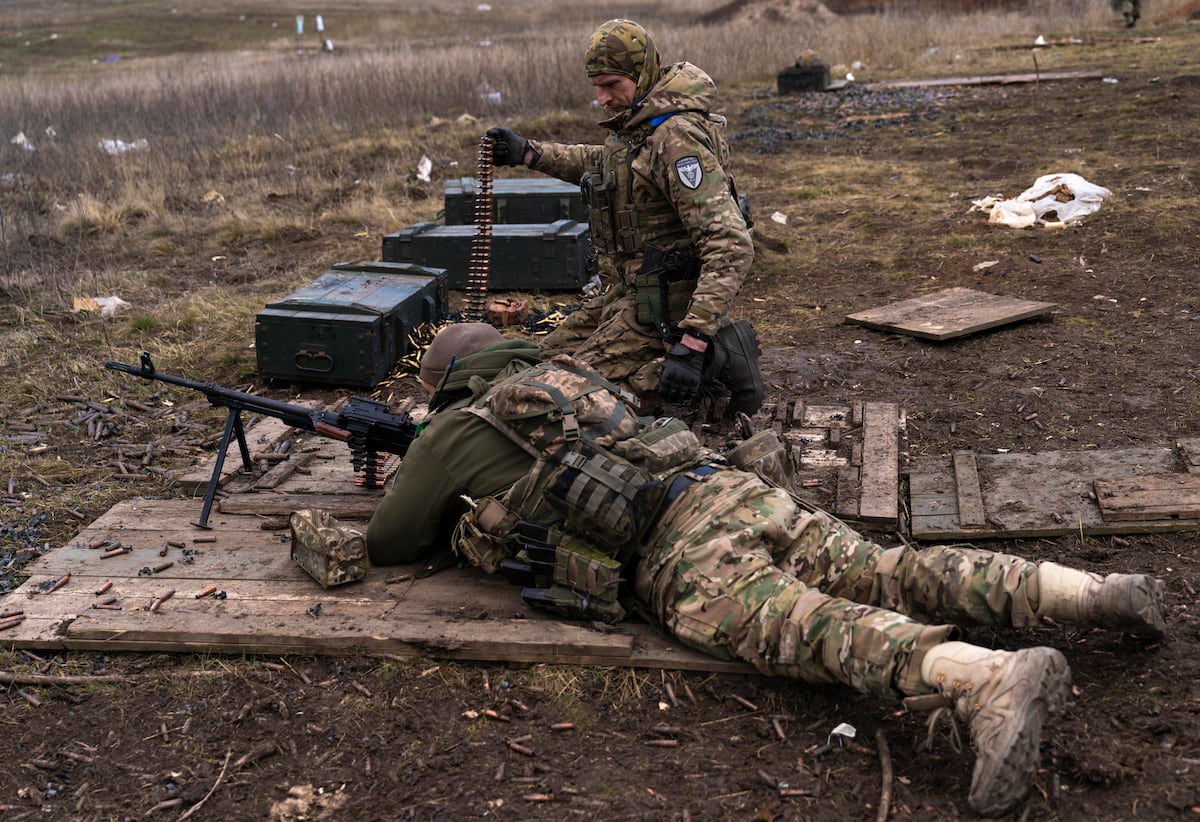France and NATO Allies Join Forces to Train Ukrainian Troops
France is finalizing plans to send instructors to Ukraine, aiming to bolster Kyiv's defense in its conflict with Russia. In coalition with several NATO allies, France intends to dispatch an advanced party of specialists to explore the feasibility of training initiatives and subsequently enroll several hundred soldiers to instruct Ukrainian troops in demining, weapon usage, and the formation of a new motorized brigade. The initiative, groundbreaking for its direct engagement, underscores France's commitment to military support for Ukraine, despite potential tensions within the Atlantic Alliance.
Lithuania has confirmed its readiness to participate, with Estonia and the United Kingdom expressing openness to the idea. However, this move could strain relations with the United States and Germany. Both countries have cautiously lifted restrictions on using supplied weapons against Russian targets, emphasizing the sensitive nature of increasing military aid. The French plan, set to be formally announced possibly during President Volodymyr Zelensky's visit to France for the Normandy landings' anniversary, is seen as a significant step in fortifying Ukraine's defenses.
Western Presence and Its Implications
Currently, NATO soldiers, primarily from the United States, France, the United Kingdom, and other allied nations, are present in Ukraine in roles focused on intelligence and oversight of Western weaponry. These personnel, however, do not represent a formal, organized mission like the one France proposes. Military experts like Camille Grand from the European Council on Foreign Relations argue that the formalization of this mission marks a critical stance against what is perceived as an 'existential' threat to Europe.
This development follows months of calls from Ukraine for on-ground training to maximize the effectiveness and adaptability of their troops. Training centers are proposed to be set up in western Ukraine, strategically protected by air defense systems, ensuring the safety of the trainers.
Global Reactions and Strategic Implications
While some European nations, like Lithuania and potentially others, have shown support for France's initiative, there remains significant hesitation. Countries like Germany and Poland express concerns over the repercussions if Russian forces target these trainers. Russian President Vladimir Putin has already criticized the idea, labeling the presence of Western military instructors in Ukraine as that of 'mercenaries.'
Further complicating matters, the European Union has not reached a consensus on this initiative, with varied national stances adding to the complexity of its implementation. Nonetheless, military specialists suggest that formalizing training missions signifies a commitment without necessarily escalating conflict directly, paralleling Cold War strategies where advisory missions did not equate to direct belligerence.
- The deployment is seen by experts as inevitable due to the dire need to enhance Ukraine's defense capabilities amid the ongoing conflict. Ian Lesser from the German Marshall Fund highlights the importance of sending superior military equipment alongside trainers.
- The project, while facing obstacles in consensus among EU nations, reflects a shared recognition of the strategic necessity to equip Ukraine with enhanced military skills and resources.
- The planned coalition of military instructors underscores the broader geopolitical tensions and the balancing act European nations must perform between providing effective support to Ukraine and avoiding direct confrontation with Russia.






